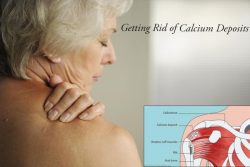HEALTHY EATING: HOW TO CERTIFY BETTER HEALTH
Health and quality of life are affected greatly by the food products you consume. There is a general confusion about the best guide to the healthy rating. This is a detailed guide for beginners, wishing to adopt healthy eating.
Why eat healthily?
Serious diseases are directly created due to a poor diet and a healthy diet drastically reduces the chances of developing heart disease and cancer. Healthy eating improves brain function, physical appearance etc.
Calorie Intake
It is not absolutely mandatory to count calories while eating. However, total calorie intake is still essential in weight control and health.
If you eat more calories that you use, you gain weight and if you want to lose weight, you must create a calorie deficit. Calories and energy balance are hence important aspects of a diet.
Macronutrients
- Carbohydrates, fats, and protein are the three macronutrients.
- Carbs: Bread, pasta, potatoes, fruit, legumes, juice, sugar and dairy products.
- Protein: meat, fish, legumes, tofu, dairy, and eggs.
- Fats: seeds, nuts, cheese, butter, fatty meat and oily fish.
Macronutrients are to be consumed, depending upon the daily lifestyle and goals.
Magnesium: important for cellular processes, energy production, nervous system function, contractions in muscle.
- Iron: improved immune system, brain function and carrying oxygen in the blood.
- Calcium: an important component of bones and teeth, the key mineral for the nervous system, heart, and muscles.
- Potassium: Blood pressure control, fluid balance, and muscles and nerves functioning.
All there micronutrients are essential for survival.
Eating whole foods
Whole foods should be consumed 80-905 of the time. Whole foods refer to natural unprocessed foods contain only one ingredient. Processed foods have less nutritional value and have empty calories.
Food to Eat
These food groups should be used as a base for your daily diet regime:
- Vegetables: low in calories and full of micronutrients, they are a fundamental part of every diet.
- Fruit: provides micronutrients and antioxidants to improve overall health.
- Nuts and seeds: Best fat sources with important micronutrients.
- Eggs: one of the healthiest foods on the planet, eggs pack fats, micronutrients, and protein.
- Meat and Fish: these are the major sources of protein and a staple in the human diet.
- Healthy Starches: Quinoa, potatoes are the healthy starch group.
- Diary: Natural yogurt and milk are low-cost sources of calcium and protein.
- Herbs and Spices: they are high in nutrients and have beneficial plant compounds.
- Beverage: Water should be the major beverage of a daily diet, along with coffee and tea.
- Beans and Legumes: they are packed with micronutrients, protein, and fiber.
Foods to avoid
- Trans fats: partially hydrogenated fats or trans fats are linked to heart diseases.
- Sugar based food: Sugary drinks cause obesity and type 2 diabetes.
- Refined carbs: White bread and other refined carbs cause obesity, metabolic disease, and overeating.
- Low fat processed products: low-fat products are a disguise of too much sugar, making you even unhealthier.
- Vegetable oils: they disrupt the omega 6 to 3 balance causing problems.
Importance of portion control
Portion control is the key to weight control and health. There are a few strategies to portion size:
- Use smaller plates
- Make smaller than average first serving
- Wait for 20 minutes before opting for more food
- Measure portion size with your hand. 1fist sized portion of cards, 1-2 palms of protein in 1-2 portions of healthy fats are necessary
- Portion cheese, nuts, and fatty meats before consuming it.
Tailoring the diet
- Assess your calorie need
- Eat less than you burn to lose weight. To gain weight, consume more than you burn.
- If calorie portioning is not your cup of tea, opt for eating healthy whole food and avoid the list of foods mentioned above.
- Deficiencies should be tailored into the diet adequately too.
- To lose weight, consider increasing protein intake.
Sustainable healthy eating
If you are not ready to live up to your diet schedule for the next three to four years, then the diet is not for you.
It is useless to go on extreme diets that you cannot maintain. Most people regain the weight they lost after attempting a weight loss diet.
Balance is the key to everything. Totally eliminating some food groups only causes more problems.
Base 90% of your diet on whole foods and the rest 10% on occasional treats.
Supplements
Supplements are to be sued in addition to a healthy diet. These supplements, however, have been proven to be effective in the long term:
- Vitamin D: usually available from sunlight for fish, this can be used as a supplement in case of deficiency.
- Magnesium, Zinc, and Omega-3: use these if you can’t get them enough from your diet.
- Creatinine, protein, and beta-alanine: they can be used to enhance sports performance.
It’s best to follow a healthy diet rather than looking out for supplements.
Healthy habits
Healthy eating should be amalgamated with healthy habits in order to reap the optimal benefits of a good health.
- Exercising gives a better health boost to healthy eating.
- Good sleep is necessary for minimizing disease risk and weight.
- Water intake should be adequately followed throughout the day. Stay well hydrated all day.
- Minimize stress as long-term stress leads to many health problems.
All in all, it should be understood that good health is a combination of eating the right foods, avoiding the wrong food groups and maintaining healthy habits.
READ ALL HEALTH AND BEAUTY RELATED ARTICLE
Recent News
-

Duane Chapman Is Now Engaged To Girlfriend Francie Frane, Had Lost Wife 10 Months Earlier
-

Katherine Schwarzenegger Pregnant With Her First Child With Husband Chris Pratt
-

Chris Cuomo's Son Mario Tested Postive For Coronavirus
-

Kodak Black And NBA YoungBoy, Dissing One Another Via Social Media
-

Maeve Kennedy McKean, Robert F. Kennedy's Granddaughter, is Missing Along With Her Son
Entertainment
-

The Evolution of Entertainment: Online Casting Calls Redefining the Industry
-

Mamoudou Athie's Must-Watch Performances in the Movies and TV Series
-

Try These Unique Forms of Entertainment When You've Exhausted All Options
-

7 Best Movies on Netflix This Week
-

Campus Grooves: Exploring Music Festivals in American Colleges






